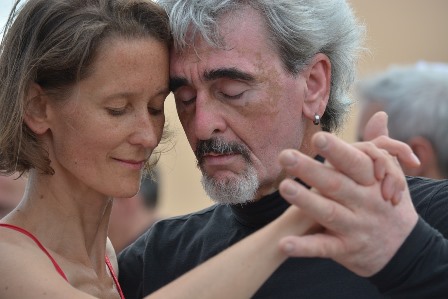Whether you’re 26 or 62, forming intimate relationships can feel more like a rollercoaster ride than a stroll in the park. On the one hand, there are those who have grown up imagining that new romances should run smoothly if they’re “meant to be”. Raised on a banquet of Hollywood-fueled happily-ever-after stories, they imagine that—after running a short gauntlet of difficult but manageable challenges—their relationships will blossom into lasting, joy-filled togetherness.
On the other hand are those who have stopped believing in love at all. Jaded by mishaps, failed attempts, and even cruelty, they believe functional relationships are fairy tales created by corporate behemoths eager to sell candy, flowers, and darling stuffed animals.
Like so many dichotomous narratives, however, the truth lies somewhere in the middle. With over 24 years of successful marriage under my belt, I can confidently say that functional relationships do exist. They just don’t look the way you might imagine them to.
A glimpse inside
When my husband and I first met—and through the early years of our marriage—there was very little about our relationship that could be characterized as blissful. When I got angry, I raised my voice, got verbally abusive, or dissolved into tears. When he got angry, he repressed, walked away, and refused to talk it out. I was flighty, disrespectful of his emotions, self-absorbed. He was jealous, judgmental, overly-sensitive. I would like to say that we were able to ignore all that because we had a blazing relationship in the bedroom, but that’s not true either. We struggled in that department as well.
I suspect a lot of new relationships have similar inauspicious beginnings. The thing is, they never get past the beginning because so many of us understand that relationships are not essential to happiness, and so few of us are willing to “settle”. I happen to agree with both those sentiments. As human beings, we’re capable of finding our own joy. And there’s no sense in settling for a relationships that lacks the capacity to support our growth.
There is, however, a flip side—and that comes down to your priorities. If relationship is something you’re looking to as a panacea for your own loneliness or as a socially-acceptable construct (“all my friends are involved, so I should be too”), chances are your foundation will crack at the first signs of real difficulty. If, however, relationship is a vehicle you’re consciously choosing as a way to cultivate intimacy, giving up becomes a less viable option.
The secret sauce
Virtually every couple I know that weathered the tough times to build a lasting relationship agrees that one essential ingredient to success must be commitment. As a couple, you must both be committed to making the relationship work. That means that, individually, you must commit to work on yourself.
Because, here’s the thing: whether it seems that way or not, we tend to form relationships with people who are at the same level of emotional maturity as us. For our relationships to work, both partners must be willing to invest in their own emotional evolution. And that can be as difficult as it sounds.
Functional relationships aren’t all rainbows and sunshine. True intimacy has a tendency to expose our vulnerabilities. It can be awkward, embarrassing, uncomfortable, even ugly. Oddly enough, that’s its gift. As our sharp edges rise to the fore, we’re given the opportunity to change them. If we ignore that opportunity by trying to re-bury the things we most dislike about ourselves, dollars to donuts our relationships will suffer. Conversely, if we embrace the opportunity, we make ourselves emotionally stronger—and the spillover effect strengthens our relationship in turn.
Over time, that practice becomes a habit, and you get better at more rapidly identifying and overcoming the challenges. And that’s when you truly start reaping the rewards of all your hard work. You learn how to calmly handle conflicts that may have boiled over in the past. You begin to resolve differences of opinion up-front, before they ever have a chance to fester. You discover how to disrupt your partner’s negative spirals before he or she ever touches bottom. And your partner knows how to hold you up as well.
It takes time. It takes work. And it’s entirely worth the effort. Because, at the end of the day, functional relationships teach you how to become a better person—and that’s something you retain whether or not your relationship lasts a lifetime.





I want one!
This week’s offering was perfect timing. Love the writing.
Thank you, Kara. You were top of mind in the writing, actually 🙂 XO